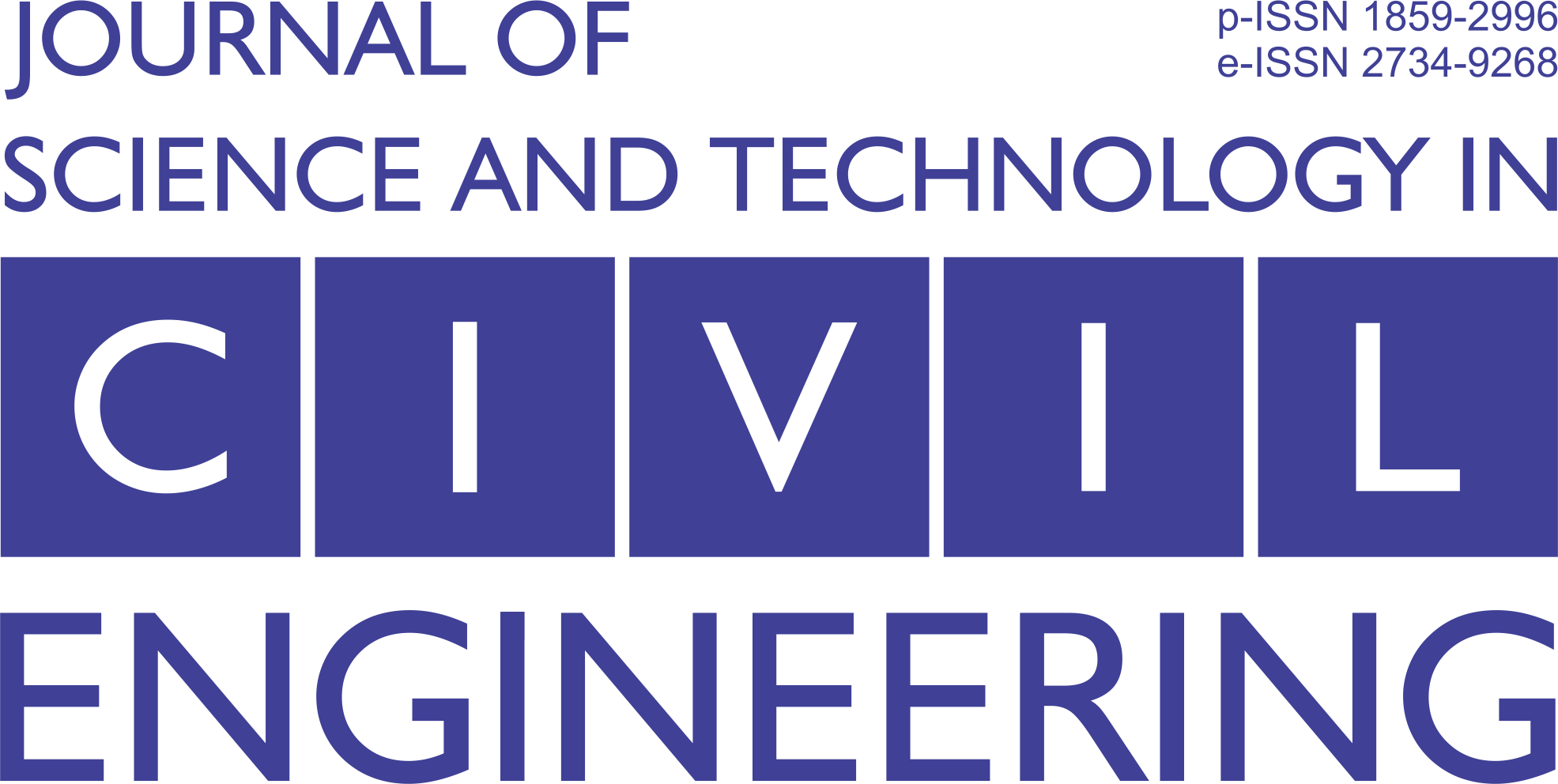Nghiên cứu mối quan hệ giữa mức độ cam kết của chủ đầu tư, nhà thầu và tư vấn giám sát tới tiến độ dự án xây dựng tại Việt Nam
Tóm tắt
Các cam kết của các bên tham gia trong quá trình thực thi dự án đóng vai trò quan trọng đến sự thành công của dự án. Bài báo nhằm làm rõ mối quan hệ thông qua mức độ ảnh hưởng của các cam kết của các bên tham gia dự án tới tiến độ dự án thực hiện. Kết quả nghiên cứu đã chỉ ra rằng, các cam kết của nhà thầu trong quá trình thực thi dự án liên quan đến tiến độ và cam kết trách nhiệm của đơn vị tư vấn giám sát có ảnh hưởng rất có ý nghĩa thống kê đến tiến độ dự án. Kết quả nghiên cứu một mặt cung cấp các thông tin khoa học cho công tác quản lý dự án trong việc đề xuất các giải pháp nhằm cải thiện chất lượng dự án xây dựng, mặt khác góp phần làm rõ cơ sở khoa học về quản lý dự án trong phạm vi cam kết thực thi của các bên tham gia dự án.
Từ khoá: chất lượng dự án; cam kết; quản lý dự án; tiến độ dự án.
Tải xuống
Tài liệu tham khảo
Garbharran, H., Govender, J., Msani T. (2012). Critical success factors influencing project success in the construction industry. Acta Structilia, 9(2):90-108.
Akinsola, A. O., Potts, K. F., Ndekugri, I., Harris, F. C. (1997). Identification and evaluation of factors influencing variations on building projects. International Journal of Project Management, 15(4):263-267.
Alias, Z., Zawawi, E. M. A., Yusof, K., Aris, N. M. (2014). Determining critical success factors of project management practice: A conceptual framework. Procedia - Social and Behavioral Sciences, 153:61-69.
Belout, A. (1998). Effects of human resource management on project effectiveness and success: Toward a new conceptual framework. International Journal of Project Management, 16(1):21-26.
Cserháti, G., Szabó, L. (2014). The relationship between success criteria and success factors in organisational event projects. International Journal of Project Management, 32(4):613-624.
Davis, K. (2014). Different stakeholder groups and their perceptions of project success. International Journal of Project Management, 32(2):189-201.
Chan, A. P. C., Scott, D., Chan, A. P. L. (2004). Factors affecting the success of a construction project. Journal of Construction Engineering and Management, 130(1):153-155.
Thompson, J. L., Martin, F. (2010). Strategic management: Awareness & change. Cengage Learning EMEA.
Denison, D. R. (2000). Organizational culture: can it be a key lever for driving organizational change. The handbook of organizational culture, Cartwright S. and C. L. Cooper, eds. London: John Wiley.
Egan, J. (1998). Rethinking construction. London: Department of the Environment, Transport and the Region HMSO.
Omran, A., Abdulbagei, M. A., Gebril, A. O. (2012). An evaluation of the critical success factors for construction projects in Libya. International Journal of Economic Behavior, 2(1):17-25.
Williams, P., Ashill, N. J., Naumann, E., Jackson, E. (2015). Relationship quality and satisfaction: Customer-perceived success factors for on-time projects. International Journal of Project Management, 33(8):1836-1850.
Liu, A. M., Shuibo, Z., Meiyung, L. (2006). A framework for assessing organisational culture of Chinese construction enterprises. Engineering, Construction and Architectural Management, 13(4):327-342.
Kululanga, G., Edum-Fotwe, F., McCaffer, R. (2001). Measuring construction contractors' organizational learning. Building Research & Information, 29(1):21-29.
Futrell, D. (1994). Ten reasons why surveys fail. Quality Progress, 27(4):65-70.
Prost, L., Makowski, D., Jeuffroy, M. H. (2008). Comparison of stepwise selection and Bayesian model averaging for yield gap analysis, Ecological Modelling, 219(1):66-76.
1. Tác giả chuyển giao toàn bộ bản quyền bài báo cho Tạp chí Khoa học Công nghệ Xây dựng (TCKHCNXD) – Trường Đại học Xây dựng Hà Nội (ĐHXDHN), bao gồm quyền xuất bản, tái bản, truyền tải, bán và phân phối toàn bộ hoặc một phần bài báo trong các ấn bản điện tử và in của Tạp chí, trong tất cả các phương tiện truyền thông được biết đến hoặc phát triển sau này.
2. Bằng cách chuyển giao bản quyền này cho TCKHCNXD, việc sao chép, đăng, truyền tải, phân phối hoặc sử dụng toàn bộ hoặc một phần bài báo bằng bất kỳ phương tiện nào bởi Tác giả đều yêu cầu phải trích dẫn đến Tạp chí một cách phù hợp về hình thức và nội dung, bao gồm: tiêu đề của bài báo, tên các tác giả, tên tạp chí, tập, số, năm, chủ sở hữu bản quyền theo quy định của Tạp chí, số DOI. Khuyến khích đưa kèm đường dẫn (Link) của bài báo đăng trên trang web của Tạp chí.
3. Tác giả và công ty/cơ quan chủ quản đồng ý rằng tất cả các bản sao của bài báo cuối cùng được xuất bản hoặc bất kỳ phần nào được phân phối hoặc đăng bởi họ ở dạng in hoặc điện tử như cho phép ở đây sẽ bao gồm thông báo về bản quyền theo quy định trong Tạp chí và trích dẫn đầy đủ đến Tạp chí như được công bố trên trang web.







